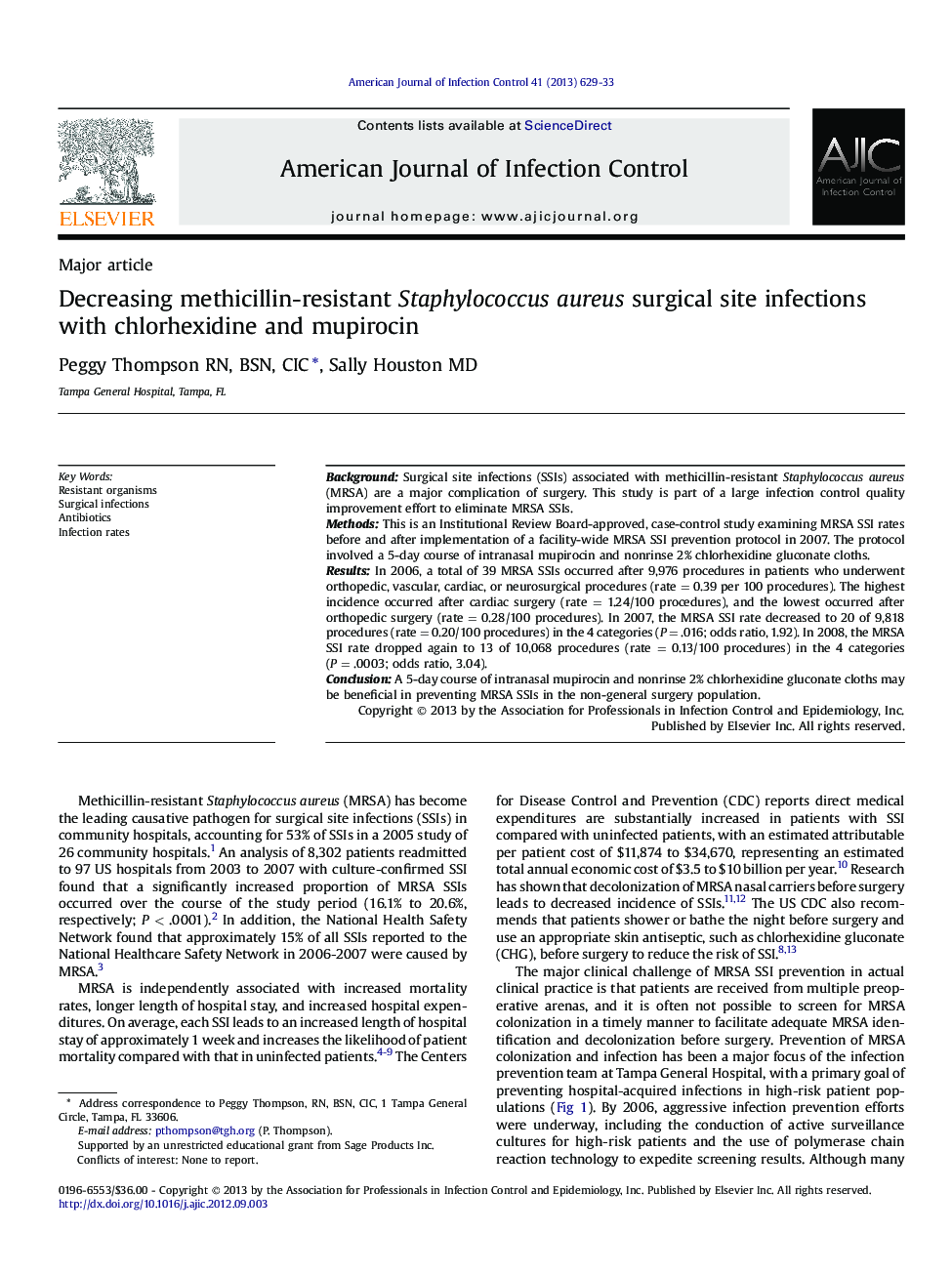| Article ID | Journal | Published Year | Pages | File Type |
|---|---|---|---|---|
| 2639736 | American Journal of Infection Control | 2013 | 5 Pages |
BackgroundSurgical site infections (SSIs) associated with methicillin-resistant Staphylococcus aureus (MRSA) are a major complication of surgery. This study is part of a large infection control quality improvement effort to eliminate MRSA SSIs.MethodsThis is an Institutional Review Board-approved, case-control study examining MRSA SSI rates before and after implementation of a facility-wide MRSA SSI prevention protocol in 2007. The protocol involved a 5-day course of intranasal mupirocin and nonrinse 2% chlorhexidine gluconate cloths.ResultsIn 2006, a total of 39 MRSA SSIs occurred after 9,976 procedures in patients who underwent orthopedic, vascular, cardiac, or neurosurgical procedures (rate = 0.39 per 100 procedures). The highest incidence occurred after cardiac surgery (rate = 1.24/100 procedures), and the lowest occurred after orthopedic surgery (rate = 0.28/100 procedures). In 2007, the MRSA SSI rate decreased to 20 of 9,818 procedures (rate = 0.20/100 procedures) in the 4 categories (P = .016; odds ratio, 1.92). In 2008, the MRSA SSI rate dropped again to 13 of 10,068 procedures (rate = 0.13/100 procedures) in the 4 categories (P = .0003; odds ratio, 3.04).ConclusionA 5-day course of intranasal mupirocin and nonrinse 2% chlorhexidine gluconate cloths may be beneficial in preventing MRSA SSIs in the non-general surgery population.
